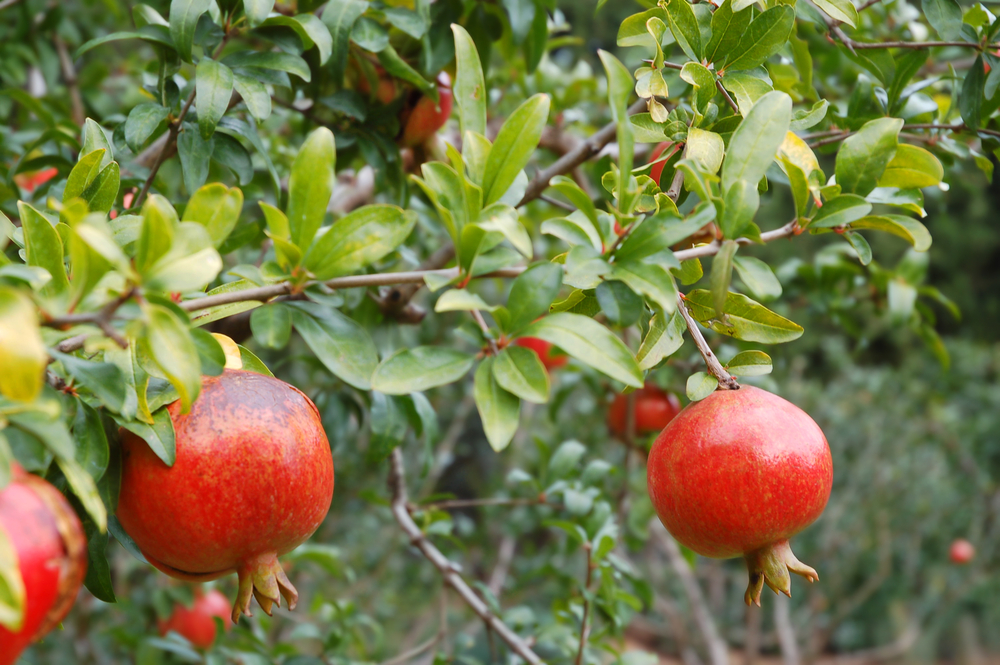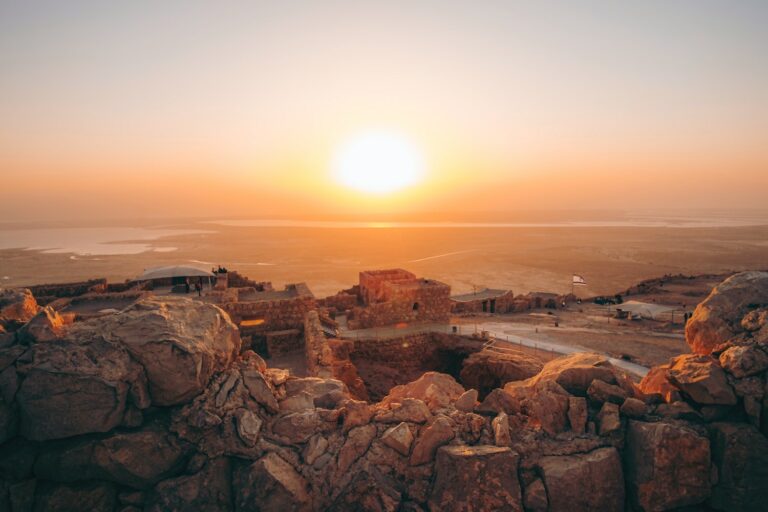By Maxine Carlill, ICEJ Australia Editor
“But seek ye first the kingdom of God, and his righteousness,” Jesus said in Matthew 3:23. There is a beautiful biblical fruit, popular in Israel, from which we can draw a lesson in this regard. It is the pomegranate.
Song of Songs 7:12, “let us go out early to the vineyards and see whether the vines have budded, whether the grape blossoms have opened and the pomegranates are in bloom.”
In 1 Kings, Chapter 7: 41, we are told that in the building of Solomon’s Temple, 400 bronze pomegranates were included in the decoration around the pillars. Around the hem of the High Priest, 72 pomegranates of ‘blue, purple and scarlet yarn’ alternated with small gold bells. And in Song of Songs 4:3, the beloved’s brow is likened to pomegranates.
The beauty of the pomegranate was widely acknowledged and mentioned several times in the Bible. It is an evergreen tree, as distinct from most other fruit trees. Its dark green leaves, and brilliant scarlet blossoms, and later, its round red unique fruit, makes it stand out in the flowering and fruiting seasons of the Promised Land. Israel harvests approximately 60,000 tons of the fruit annually, of which about half are earmarked for export. The fruit is rich in vitamins and folic acid.
Juice kiosks in Israel offer freshly squeezed pomegranate juice and this health giving drink contains an anti-oxidant that is recognised by researchers as being most effective in preventing heart attacks.
The pomegranate was one of the Seven Species singled out in Deuteronomy chapter 8, verse 8, to signify the fruitfulness of the Land into which the Israelites were about to enter. “For the LORD your God will bring you into a good land… A land with wheat and barley, and vines and fig trees, and pomegranates; a land of olives, and honey;” in fact it was one of the fruits brought back by the ten spies when they returned from their scouting expedition (Numbers 13:23).
In Jewish tradition, pomegranates represent fruitfulness and righteousness. It is said that the hundreds of seeds they contain are symbolic of the 613 commandments God gave the people of Israel through Moses. Therefore, today in Israel, the pomegranate remains significant and is a popular motif for jewelry, ceramic items, paintings and wall hangings. The pomegranate image has also been found on ancient coins. The developed fruit sports a ‘crown’ which is often reproduced on the top of the ornate covers of Torah scrolls.
The pomegranate is part of many households’ menus but as it fruits in time for Rosh Hashanah, the Jewish new year, it is an important feature as one of the traditional foods on the festive table. Later during Succot, the Feast of Tabernacles, it is used to decorate the small booth, the succah.
Rabbis have said that the fact that there is no flesh in the fruit, only seeds, it speaks of the blessings and commandments of God – they are not for our own selfish, fleshly desires, but for blessing others because once flesh is gone, it has gone forever, but when a seed dies, it produces a whole load of new life. Therefore, they say, ‘a pomegranate reminds us that we are living for the benefit and blessing of others.’
This beautiful fruit, abundant in seeds, can certainly remind us of the fruitfulness and righteousness which God looks for in our lives. Philippians 1:11 tells us to “be filled with the fruit of righteousness that comes through Jesus the Messiah to the glory and praise of God.”




